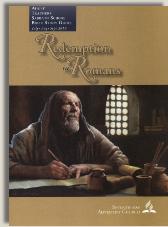|
||||||||||||||
Commentary on "All Have Sinned"
Day 6: Thursday, July 15, 2010 - Repentance
Overview
Today the lesson brings to the front the subject of repentance. As yesterday’s lesson did, it deals with some verses from chapter 2 of Romans. While it is indeed true that God’s goodness leads to repentance and God doesn’t force anyone toward repentance, it is not clear how God’s warnings of future doom and punishment fit into the picture. Repentance actually is based on God’s mercy and goodness and is manifested in His grace shown in Christ for sinners. Repentance isn’t entirely triggered by God’s goodness. Understanding God’s goodness and mercy presupposes a previous understanding of His holiness, man’s sinfulness, and God’s holy and terrible wrath manifested against every sin. Without the fear of God—which is something greater than reverence for God—the gospel makes little sense and has little appeal—and it seems even less useful.
Observations
While the current lesson doesn’t address the subject of the nature of punishment against sin or the proportion in which God’s holy wrath is manifested against sin, it can be assumed that the author subscribes to the Adventist understanding that one of the features of the wine of spiritual Babylon (Revelation 18) from which the evangelical churches drink is the teaching of eternal punishment. In the Adventist understanding, these churches preach a gospel of fear, of a God who coerces man through the fear of punishment and eternal suffering toward repentance. The author of this lesson may have this misunderstanding in mind as he’s arguing against the notion that God forces somebody toward repentance.
Apart from the subject of the duration of punishment, what seems odd is the author’s focus on God’s goodness and forbearance without mentioning even once the overall subject of the first three chapters of Romans which he is supposed to analyze. These chapters constitute a unit, and they are intended to prove the thesis that begins this section, Romans 1:18:
For the wrath of God is revealed from heaven against all ungodliness and unrighteousness of men, who by their unrighteousness suppress the truth.
Paul follows this thesis with a long explanation ending in Romans 3. This discussion constitutes the necessary background of the gospel, the good news of redemption in Jesus. It is a part that can’t be skipped, because before the good news can be understood and accepted, the sinner must understand and accept the bad, the very bad news about God’s wrath. This bad news also seems unacceptable until the bad news about man’s sinful, rebellious, completely fallen condition hits the sinner with its whole force. God’s mercy stands in contrast with God’s wrath against sin; the gospel is truly good news about salvation only when man understands that he needs to be saved even from God himself. He needs to understand that he’s under God’s judgment and can’t escape except by Jesus Christ’ atonement.
God’s Wrath
Paul’s thesis is to show that God’s wrath is manifested not only against some sins, or against some sins of some particular people, but against all sins, against all ungodliness and unrighteousness. Sin in this case is not only unrighteousness, a transgression of a moral code, but also ungodliness, rebellion against God. And this rebellion can be seen in pagans who suppress the truth of general revelation, and also in the Jews, who, even if they are religious people and have the special revelation of the law, take God’s goodness toward them for granted. They despise God’s longsuffering and store up wrath for the judgment day (Romans 2:1-5). While bringing these verses to the front, our author sees only God’s goodness as the leading force toward repentance, while ignoring that these verses speak more about God’s judgment (three times, plus one mention of his wrath) than about His forbearance. Only in the context of the reality of God’s wrath does His goodness makes sense.
Continuing on the path of showing how God’s wrath manifests itself against rebellious and unrighteousness people, Paul arrives at the conclusion that nobody can escape God’s judgment because all have sinned and all are ungodly, rebellious against God. This discussion happens in the next chapter, and not until then does Paul change the subject away from God’s wrath and toward the good news, toward justification, sanctification, the role of the Holy Spirit, election, adoption, and all the true blessings of the Christian life. Until Romans 3:21 the bad news about man’s sinfulness and God’s wrath constitute the subject of these chapters.
In this context it is strange how our author can arrive at the following conclusion about Romans 2:5-10:
“In these verses, and frequently throughout the book of Romans, Paul emphasizes the place of good works. Justification by faith without the deeds of the law must never be construed to mean that good works have no place in the Christian life. For instance, in verse 7 salvation is described as coming to those who seek for it ‘by patient continuance in well doing.’ Though human effort can’t bring salvation, it is part of the whole experience of salvation.” (Adult Teachers Sabbath School Bible Study Guide; July, Aug, Sept, 2010, Page 38)
While nobody denies that sanctification is essential in the life of a true believer and that good works are part of the whole experience of salvation, it is extremely dangerous to affirm that salvation comes to those “who seek for it ‘by patient continuance in well doing,’” as the writer of this lessons put it.
It seems that the author’s reading of these verses describing the judgment of God is informed by his Adventist theology of the Investigative Judgment. There is no space in this short review to deal with this doctrine. For the moment, however, it’s very important to have a clear understanding of the following verses in order to avoid the author’s big error:
“He will render to each one according to his works: to those who by patience in well-doing seek for glory and honor and immortality, he will give eternal life; but for those who are self-seeking and do not obey the truth, but obey unrighteousness, there will be wrath and fury” (Rom. 2:6-8).
These verses are actually true. God will judge and render to each one according to his works. If indeed somebody performs at God’s standards, he will obtain eternal life. The question is whether Paul is really presenting a true category of people, a true class of people who are seeking glory and are not self-seeking, or whether he is presenting God’s condition in such a way that people will understand that there is nobody who seeks real glory. Everybody is self-seeking; there is no one who is righteous, no one. Indeed, Paul’s conclusion is in the next chapter, Romans 3:9-18: “no one seeks for God”.
Doers, not hearers
Coming back to chapter 2, verse 13 emphasizes this understanding:
“For it is not the hearers of the law who are righteous before God, but the doers of the law who will be justified” (Rom. 2:13).
Now, if Paul wants to prove that nobody can be justified by the works of the law (Rom. 3:20), why is he saying that “the doers of the law will be justified”? It is obvious that if there is a special class of people who are indeed “doers of the law”, who truly seek righteousness and seek God, these will be justified by the works of the law. In this case, it’s impossible to conclude that “by the works of the law no human being will be justified”. Obviously there are some who will be justified.
Our author doesn’t intend to deny this conclusion; nevertheless, his view of salvation imports an understanding of the role of works which Paul utterly rejects. Our author still has not yet understood the bad news about man’s true position, his ungodliness, his rebellion, his far-from-perfect fulfillment of God’s holy and perfect standard, especially in the case of true believers. As had been seen in the previous lessons, he construes a special category from believers who hypothetically are not in the same relationship with God’s law, who don’t fall under its condemnation as they did previous to their conversion.
Today’s lesson is no exception; rather, it’s an affirmation of righteousness by works after conversion. Works are brought through the back door by the scheme of maintaining salvation.
Summary
- God’s goodness and mercy are not the primary attributes of God in Romans chapters 1 through 3:21.
- The lesson makes almost no mention of God’s wrath which is covered thoroughly in chapters one and two.
- Chapter 3 includes the declaration that there is no one who is righteous, and no one seeks God.
- To be sure, God’s mercy and goodness are part of what lead people to repentance; however, apart from the knowledge of God’s wrath and one’s own utter depravity, the call to repentance seems less than compelling.
- Jesus is not, as the Teacher’s notes say, our “filter” or “distiller”. He is our God and Judge, and He is the one who pours out His wrath on sin.
- It is Jesus who became sin and gives us His righteousness when we place our faith in His sacrifice.
- Jesus doesn’t filter or purify us. He makes us new by giving us His life by His Spirit.
- Sanctification is not part of salvation; it is not required in order to be saved.
- Sanctification happens in us after we are saved. It is the product of the Holy Spirit living in us and bringing our spirits to life.
- We cannot change unless we have been born again. Until we are made new with the life of God, we are citizens of the domain of darkness (Col. 1:13), and nothing we do has any merit at all. All our pre-new birth deeds are deeds of the flesh, not of the Spirit.
Copyright 2010 BibleStudiesForAdventists.com. All rights reserved. Revised July 13, 2010. This website is published by Life Assurance Ministries, Glendale, Arizona, USA, the publisher of Proclamation! Magazine. Contact email: BibleStudiesForAdventists@gmail.com.
The Sabbath School Bible Study Guide and the corresponding E.G. White Notes are published by Pacific Press Publishing Association, which is owned and operated by the Seventh-day Adventist church. The current quarter's editions are pictured above.
Official Adventist Resources
Standard Edition Study Guide Week 3
Teacher's Edition Study Guide Week 3
Easy Reading Edition Study Guide Wk 3
Search the Complete Published Ellen G. White Writings


